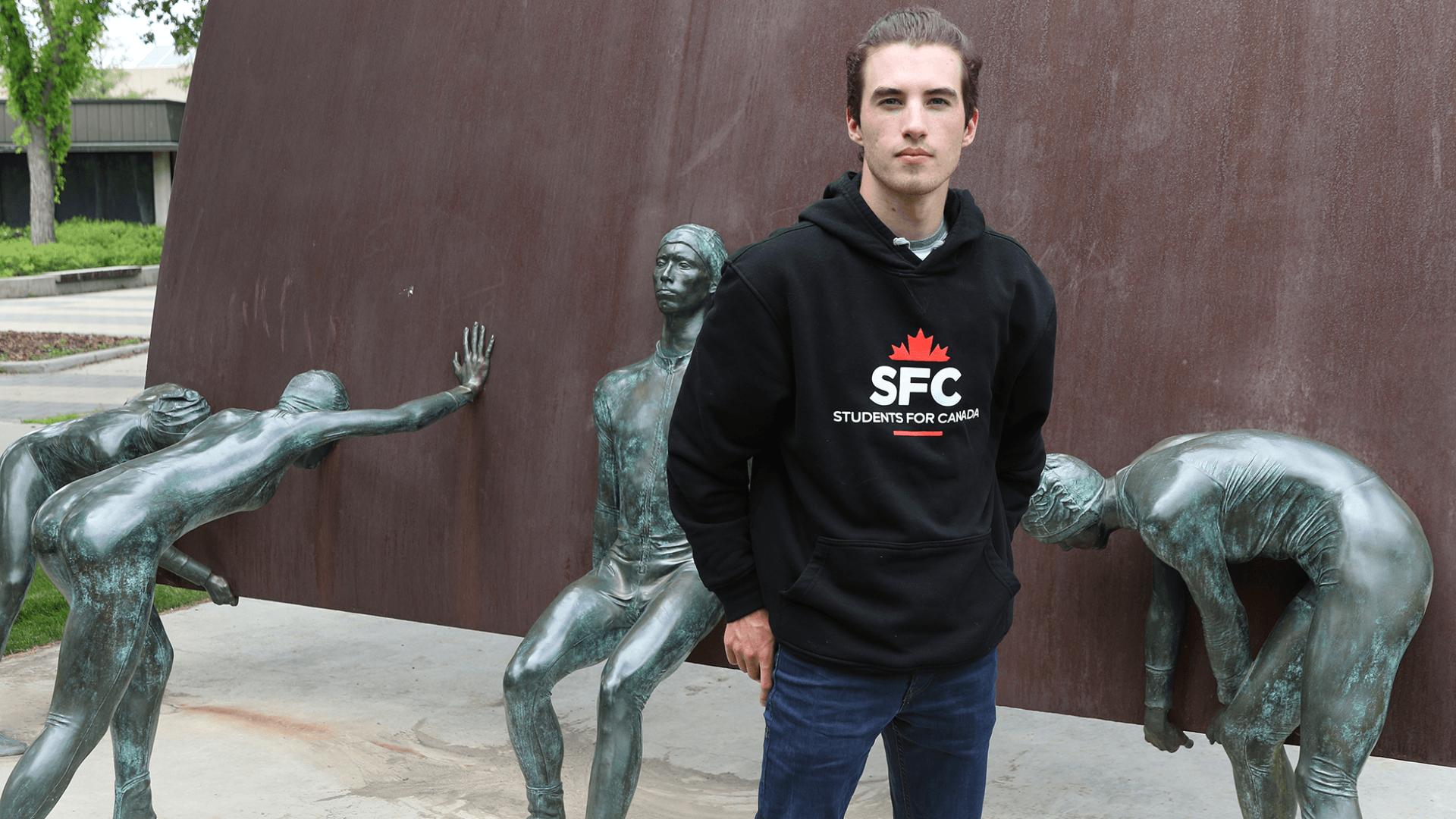For 22-year-old Justus Otto, the movement at some universities to divest from oil and gas is a symbolic gesture that has little impact other than to give a bad name to Canadian companies that are global leaders in environmental protection.
Otto graduated last year from the University of Alberta with a Bachelor of Commerce and a major in finance and economics. He’s active with the youth-led advocacy group Students for Canada.
Here’s what he had to say about oil and gas divestment, and a better path forward.
Why are you an advocate for Canadian oil and gas?
I became involved with Students for Canada early on, talking about the benefits of Canadian energy and why it’s important for young people especially to gain some knowledge on how Canadian oil and gas resources work and why they’re important.
We’re among the best in the world and we should be proud of it instead of trying to hide it under the carpet. We want to take part in climate action, but do it in a responsible way where Canada is a world leader.
Not a lot of young people really understand what divestment means. We’re trying to create a bit more of a background giving people that knowledge base so that they can make the decision for themselves.
What do you think about the divestment movement?
SFC has done research focused on the economic and social consequences of what happens when universities divest from specifically Canadian energy companies and Canadian fossil fuels.
What we found is that while divestment in principle is a moral goal that has its merit, the practical effects on companies, markets, and people’s jobs, especially in Canada, has more of an adverse effect on climate change than helping.
When you move those investments they move to non-Canadian companies, and they usually have lower standards for emissions, so divestment doesn’t actually help emissions.
What’s wrong with how divestment is addressed on campus?
There’s a disconnect about what the unspoken consequences of it are, especially to the young people who support it.
They support it mostly because it sounds good in theory to get away from oil and gas as soon as possible and get on to low carbon technologies. While obviously we support shifting to low carbon technologies, when you shift away from responsible oil and gas companies like the ones in Canada, you’re definitely doing more environmental and economic damage than good.
Being in university there’s a lot of focus, especially when it comes to climate change, on if we just make a lot of noise in the media and get people to move away from oil and gas, and stigmatize it and make it seem like it’s not a viable way forward, that’s all that needs to be done.
If we make oil and gas pay, we’re the good guys and they’re the bad guys. In reality, it’s not that simple. There are sacrifices that have to be made by everybody.
What impact does divestment have?
In the end all it does is add to the negative stigma around Canada’s resources, and that’s not good for anyone. Canadian oil and gas companies are the ones that are leading the way and we should be supporting them instead of hurting them.
One of the main things is, when those who own the endowment funds for the university divest from oil and gas, are they investing in other companies who have just as big if not a bigger impact on emissions?
Because when you talk about emissions, it’s not just where it starts. Where it ends is where most of the emissions come from, from cars, manufacturing, all that stuff. All emissions are connected. When you just say, oil company bad, everything else good, it’s really not that simple. I think that’s what most younger people think, is that it’s this binary thing.
What do you think is the better pathway for university investments?
I think people are starting to realize that you make more of an impact by working with these companies instead of against them. Many Canadian oil and gas companies support clean energy and clean tech immensely and have done a lot of work leading the world in that area.
Saying we should divest, that we should show these companies that we don’t support what they’re doing, that’s pretty low-resolution thinking because what we should be doing is working with them and supporting their goals.
That’s a lot better for both sides so that in the future it’s less of a binary. It’s less of, we can either have clean tech or oil and gas, because in reality, especially in Canada, you can have both and we should be having both.
The unaltered reproduction of this content is free of charge with attribution to Canadian Energy Centre Ltd.
